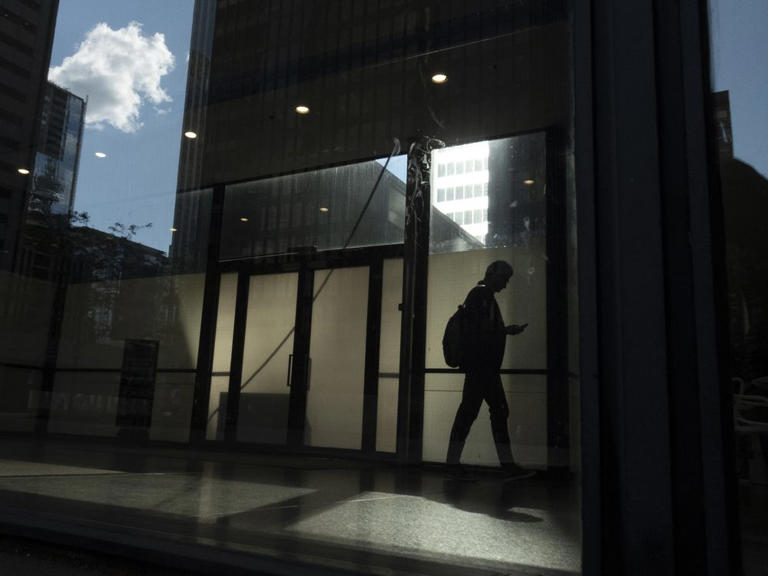
A person walks though a downtown Toronto office building with other buildings reflected in a window in this June 11, 2019 photo.© Provided by Toronto Sun
Ontario is considering banning the use of non-disclosure agreements (NDAs) in cases of workplace sexual harassment, misconduct or violence.
The government’s position is that such agreements should not be used to silence accusers.
The Canadian Press reported , “Members of the Canadian Bar Association voted in favour of discouraging the use of non-disclosure agreements in cases of abuse and harassment
“The government says seven in 10 workers have reported experiencing a form of harassment or violence in their workplace, with the rates even higher for women and gender-diverse people.”
Sunira Chaudhri, employment lawyer and founder of Workly Law, says she agrees with the government’s idea.
“There are implications to this legislation that will really impact workplaces,” she says, “and potentially in ways we would not expect.”
“It is going to stop the sort of toxic environment from being perpetuated in the workplace. There are employers that employees are deathly afraid of and won’t come forward years well after leaving an organization because their NDAs are too strong.”
On the other hand if an employer knows that they cannot count on an NDA to keep people quiet those who bring a complaint will be, “Put to a very strong evidentiary test.”
Some NDAs no doubt are in place because the company chose not to fight the allegations, and to suffer the adverse publicity, by simply paying a sum of money, signing an agreement and moving on.
Chaudhri says that if the NDAs are legislated illegal, employers will no longer be able to sweep an allegation, “under the rug,” by just throwing money at it.
Those who have disliked the notion of always believing the accuser may like the government’s move, as a false accusation may be less likely to be made.
Without the ability to make an agreement and have everyone hide behind an NDA, people may be less likely to make an anonymous allegation. That may keep some people from coming forward.
That, Chaudhri says may have a, “chilling effect on people with a legitimate complaint,” but offers some protection to those who are falsely accused as the employer will have less of a chance to just pay to make it go away, leaving suspicion over the accused.
Stories such as that of former movie producer Harvey Weinstein show that some people, and possibly organizations, have established a history of paying money and using NDAs to escape publicity and legal responsibility, allowing the bad behaviour to continue.
It is unclear at this point whether legislation to outlaw the use of NDAs in cases of workplace sexual harassment, misconduct or violence would retroactively allow victims to come forward with their stories or if NDAs in place prior to the legislation would be grandfathered in.
Chaudhri says, “My sense is that once this legislation is passed many individuals who have signed such agreements in the past might feel very comfortable speaking openly and I think we will see an uproar on things like social media.”
We may see those people taking an I dare you to come after me type of attitude.
It is easy to see two sides to such a move by the government.
On the one hand it reduces the chances of tawdry secrets kept and bad behaviour protected and perpetuated.
On the other, perhaps fewer false allegations.
In favour of the proposed legislation is the idea that sunshine is the best disinfectant.
No comments:
Post a Comment